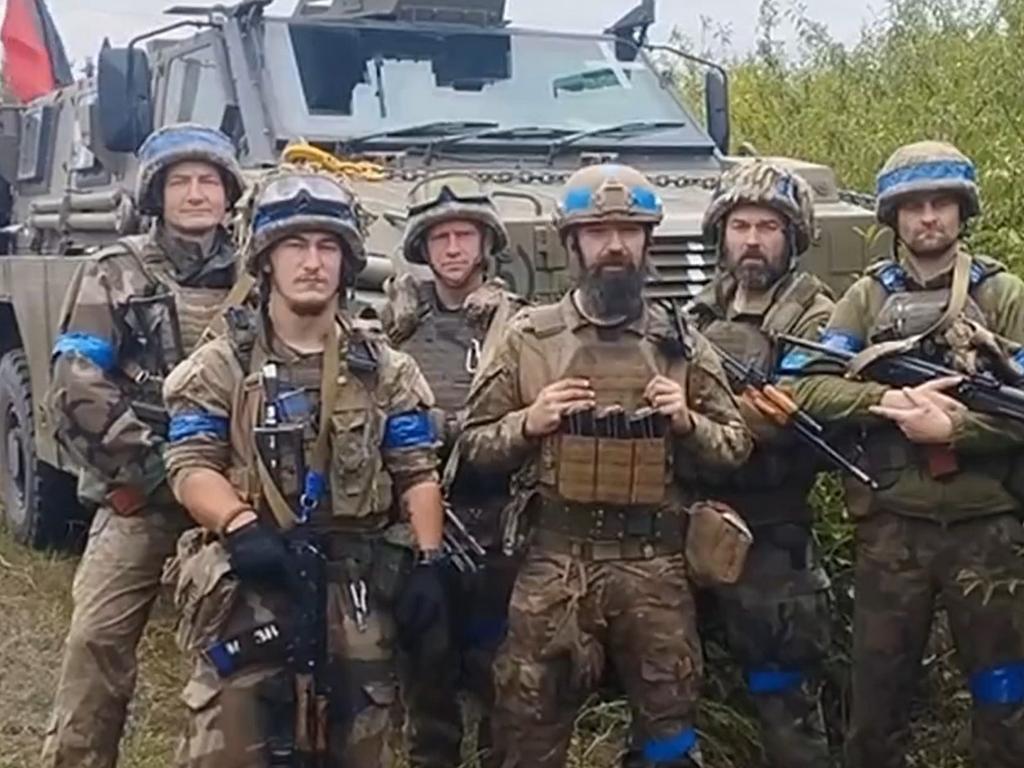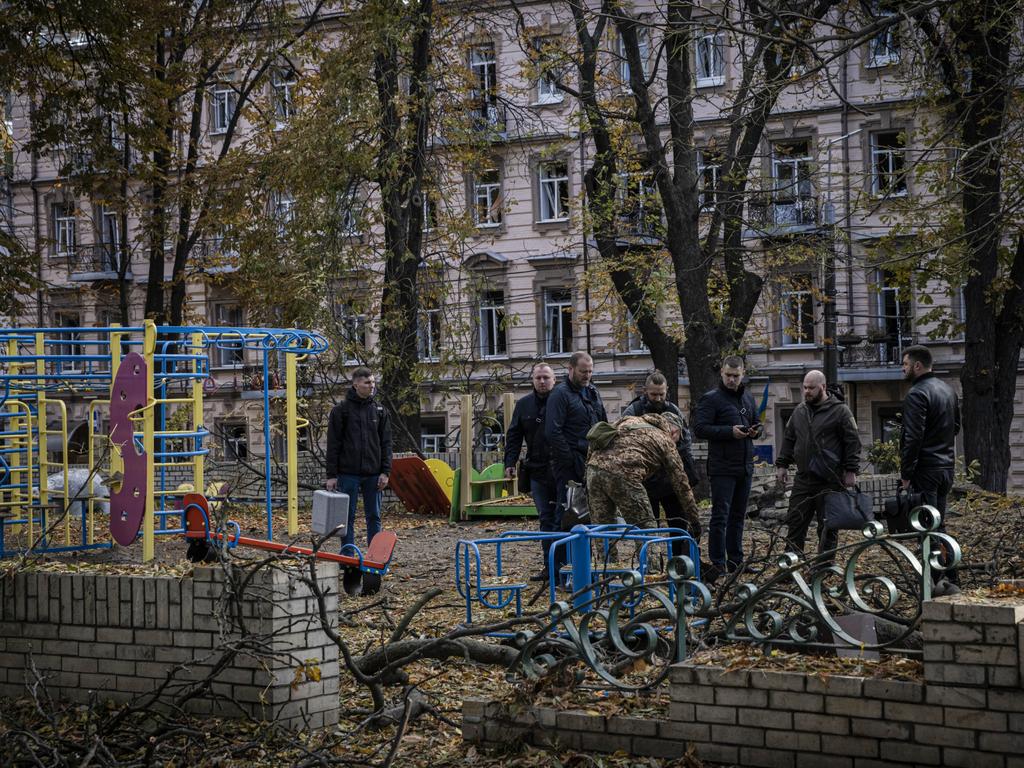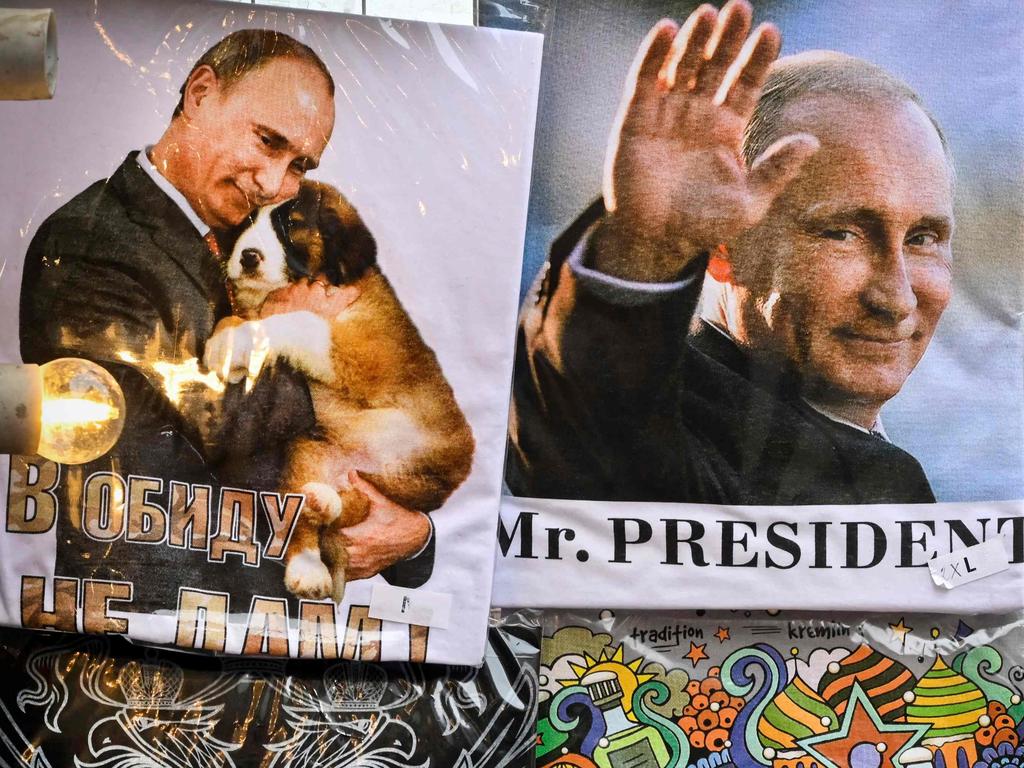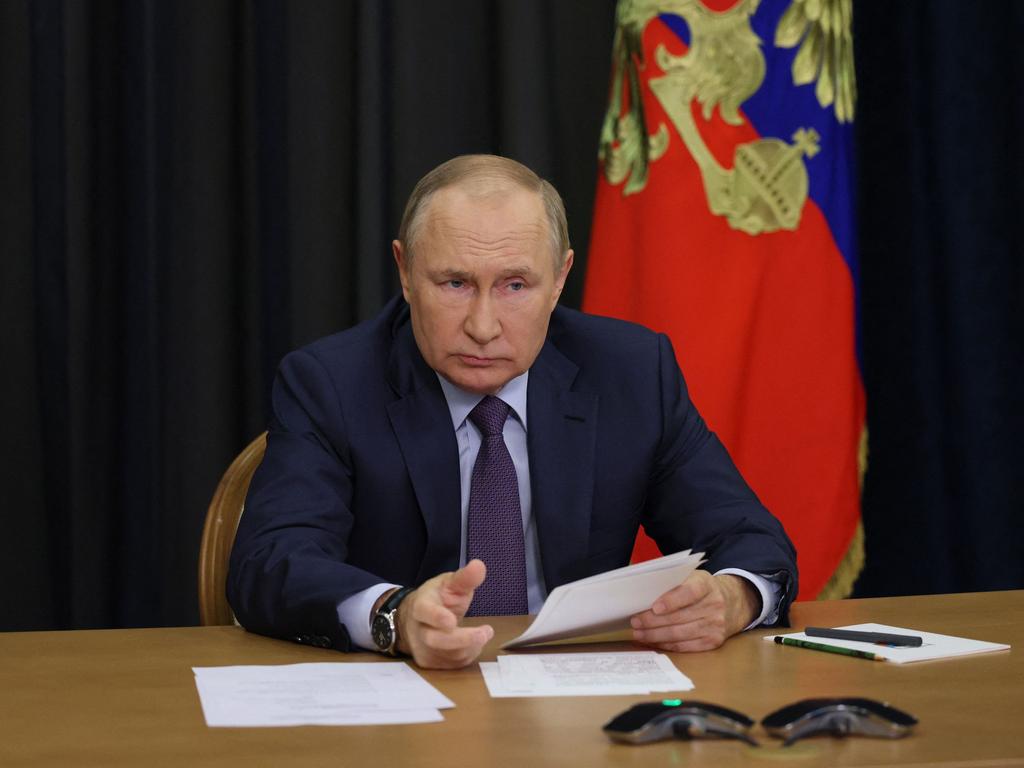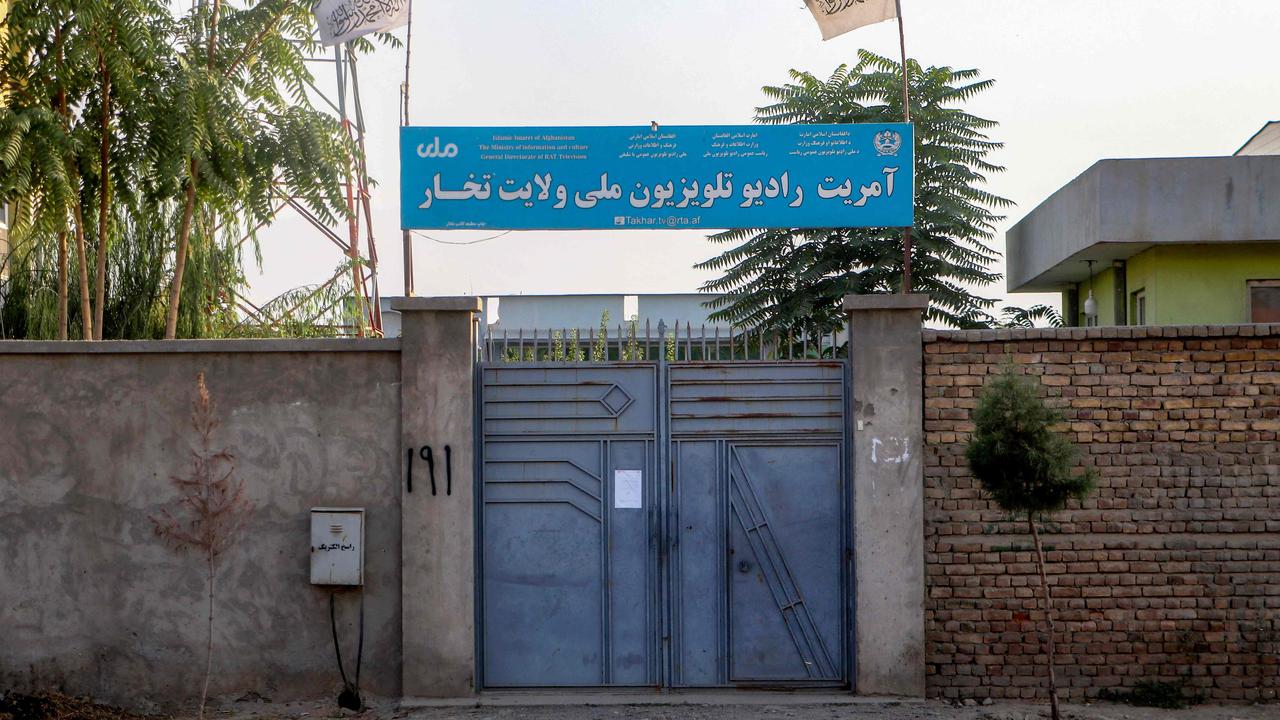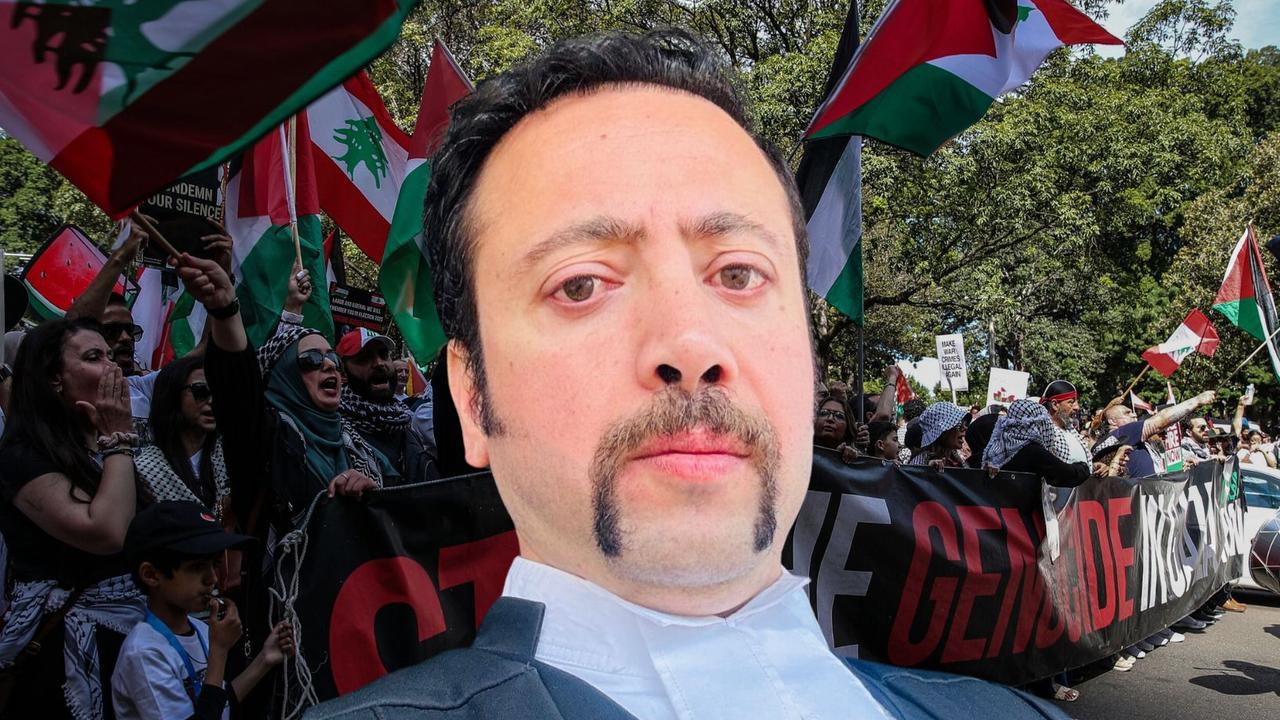Kyiv blitz ‘proof of Russian desperation’, says spy chief
Russia’s ground forces are ‘exhausted’ and its losses are ‘staggering’, according to a Western spy chief.
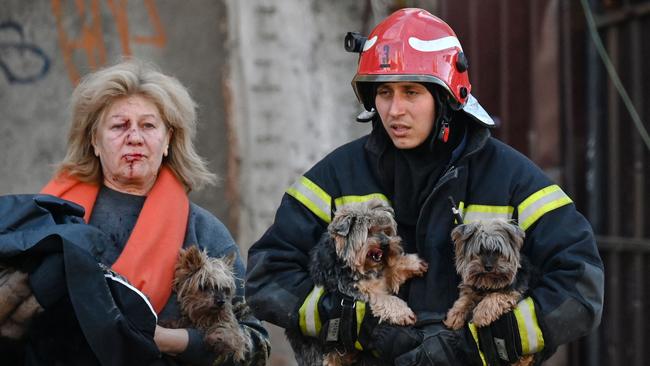
Russia’s ground forces are “exhausted” and its losses are “staggering”, according to a Western spy chief speaking after the Kremlin resorted to a missile blitz on Ukraine that left 19 people dead.
The claim came as the US announced it would provide advanced air defence systems to Kyiv, with G7 leaders meeting overnight on Tuesday expected to do the same.
Germany said it would “in the next few days” deliver the first of four systems capable of shooting down rockets at a range of up to 40km. The radar-guided batteries had been promised months ago, but “the renewed missile barrage on Kyiv and many other cities makes it clear how important the swift delivery is”, German Defence Minister Christine Lambrecht said.
But Russia remained defiant, with former president Dmitry Medvedev saying the country-wide bombardment on Monday was “the first episode” of a plan to “dismantle” Ukraine.
Mr Medvedev, the deputy head of the Russia Security Council, said: “The first episode has been played, there will be others.’’
Speaking in London on Tuesday, Sir Jeremy Fleming, head of Britain’s GCHQ, said Ukrainian forces were “turning the tide” and the decision-making of Russian President Vladimir Putin was “flawed”.
“The costs to Russia – in people and equipment – are staggering,” he said. “We know – and Russian commanders on the ground know – that their supplies and munitions are running out. Russia’s forces are exhausted. The use of prisoners to reinforce, and now the mobilisation of tens of thousands of inexperienced conscripts, speaks of a desperate situation.
“Far from the inevitable Russian military victory that their propaganda machine spouted, it’s clear that Ukraine’s courageous action on the battlefield and in cyberspace is turning the tide.”
The comments came after Russia launched more than 80 missiles on Monday, with several dozen unmanned drones targeting towns and cities. The General Staff of the Armed Forces of Ukraine said it had destroyed 41 cruise missiles and 13 drones.
The attack hit at energy infrastructure and caused electricity supply problems, with French President Emmanuel Macron describing it as a “profound change” in the war.
Hours after the attacks, Ukrainian national police said 19 people had died.
“Russia demonstrated that it can still escalate the conflict but it can only escalate by attacking more and more civilian targets,” said Wojciech Lorenz, head of the international security program at the Polish Institute of International Affairs. “The Russian regime was under pressure from its own propagandists and some opinion makers to demonstrate that it was able to respond to Ukrainian offensives.”
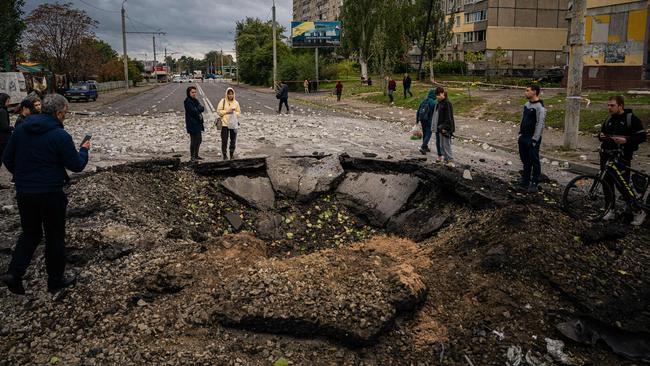
Belarusian leader Alexander Lukashenko, a close ally of Mr Putin, also issued fresh threats against Kyiv, raising fears he might join Russia’s offensive against its neighbour.
Mr Lukashenko has granted Russia use of his territory but has declined to send troops directly into battle.
On Monday he said he had agreed to deploy “a regional grouping” that would mix Russian and Belarusian troops, but did not say where they would be sent.
“I am sceptical of Belarus entering the conflict. Belarus troops are primarily engaged in repressing their own people,” said William Alberque, a military expert at the International Institute for Strategic Studies, a London-based think-tank.
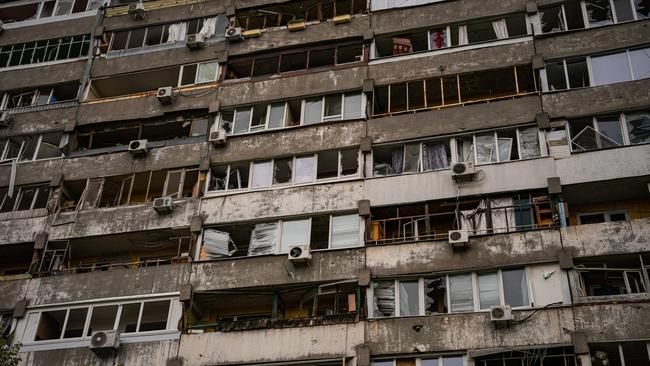
Mr Lorenz said he was also doubtful about Belarus’s direct involvement, but he said that “Ukraine will have to devote some resources to defend its border”.
“It’s better to concentrate those resources in the east (against Russia) without having to spare thousands of troops in the west and the north,” he said.
Strong-arming Belarus into greater involvement, nuclear threats and increasing the brutality of attacks on Ukraine are seen as some of the few options available to Mr Putin in the short-term as he seeks to change the momentum on the battlefield.
Mr Alberque viewed Monday’s missile attacks as being part of Putin’s strategy of trying to raise pressure on Ukraine and the West.
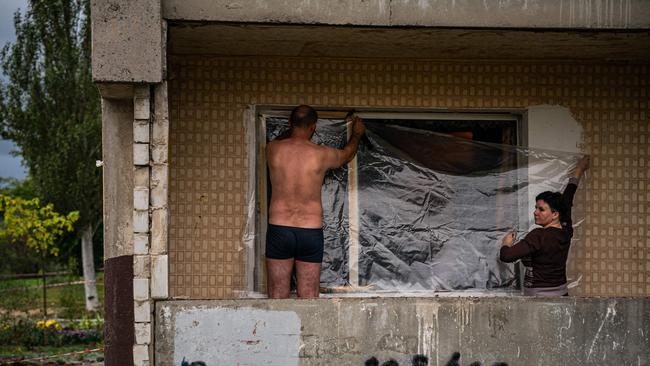
“Russia has entered a cycle of shock and the peak of violence. It started with mobilisation and annexation, then with nuclear threats and now with indiscriminate attacks against civilians,” he said.
Mr Lorenz stressed that large-scale missile attacks of the sort seen on Monday could not be repeated regularly.
“It can do a show of force, but because its resources are depleted, it is just a gesture,” he said.
Additional reporting: AFP


